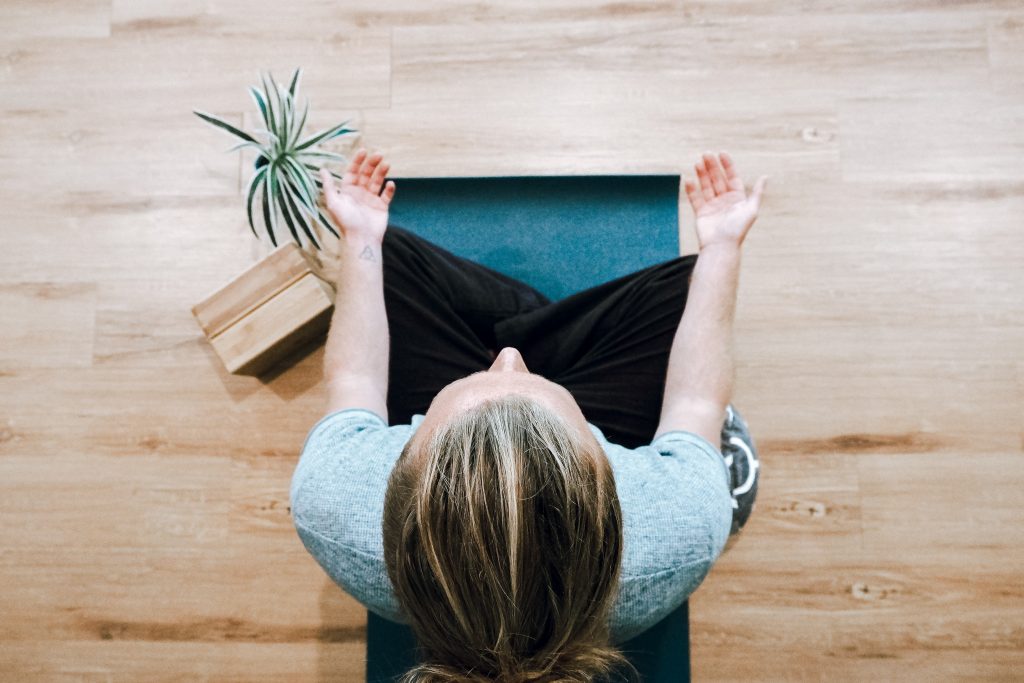In today’s fast-paced world, where distractions and noise abound, finding a moment of tranquility and self-reflection can be challenging. Thankfully, the ancient practice of meditation offers a refuge from the chaos, allowing us to tap into our inner selves and cultivate self-awareness and wisdom. So, grab a cushion, take a deep breath, and join me on this journey of discovering the remarkable role meditation plays in our personal growth.

The Gateway to Self-Awareness
Picture this: you’re sitting cross-legged, eyes closed, with a serene expression on your face. This is your personal oasis in the midst of a bustling world. Meditation is like pressing the pause button on life, giving you the opportunity to observe your thoughts, emotions, and sensations without judgment. It’s in this quiet space that self-awareness flourishes.
By consistently meditating, you become an astute observer of your mind, unraveling the tangled web of thoughts that often pull us in different directions. As you delve deeper into the practice, you’ll gain insights into your patterns, triggers, and deeply ingrained beliefs. Armed with this self-knowledge, you can make conscious choices that align with your true desires and values, rather than being led astray by old habits or societal pressures.
Taming the Monkey Mind
Ever felt like your mind is a wild monkey swinging from thought to thought, never settling down? You’re not alone! Our modern lives bombard us with stimuli, creating an overactive and restless mind. Meditation acts as a tranquilizer for the restless monkey mind, helping it find a state of calm and focus.
Through regular meditation, you’ll notice a remarkable improvement in your ability to concentrate and stay present. Like a superhero with enhanced powers, you’ll find it easier to immerse yourself in tasks, listen attentively to others, and savor the simple joys of life. Meditation equips you with the tools to tame the monkey mind, allowing you to navigate the world with grace and clarity.
The Wisdom Within
Beyond self-awareness and focus, meditation also unveils a wellspring of wisdom that resides deep within us. As you silence the external noise and turn inward, you open the doors to profound insights and intuition. The answers to your deepest questions lie patiently within, waiting for you to discover them.
In the stillness of meditation, you’ll tap into your inner wisdom, the innate knowledge that transcends logic and reasoning. This inner compass will guide you towards making wiser choices, solving problems creatively, and finding a sense of purpose and fulfillment. It’s as if meditation hands you the keys to a treasure trove of wisdom that can transform every aspect of your life.
Embracing Imperfection
One of the most beautiful aspects of meditation is its inherent acceptance of imperfection. You don’t need to sit like a pretzel or achieve absolute silence in your mind to reap the benefits. Meditation is a practice that welcomes all, regardless of experience or ability.
As you embark on your meditation journey, be gentle with yourself. Embrace the moments of distraction, the wandering thoughts, and the occasional restlessness. Meditation is not about perfection; it’s about showing up and giving yourself permission to be fully present, flaws and all. It’s through this acceptance that true growth and transformation happen.
Incorporating Meditation into Your Life
Now that we’ve explored the wonders of meditation, you may be wondering how to incorporate it into your daily life. Fear not! Meditation doesn’t require hours of your time or a solitary mountain retreat. It can be as simple as finding a quiet corner in your home or dedicating a few minutes during your lunch break to sit in silence.
Experiment with different meditation techniques and find what resonates with you. Whether it’s focused attention on the breath, guided visualizations, or loving-kindness practices, there’s a style for everyone. Start with just a few minutes a day and gradually increase the duration as you feel comfortable. Consistency is key, so make it a habit by scheduling meditation sessions in your daily routine.
In a world that often values the external achievements and material possessions, meditation reminds us of the richness that lies within. Through self-awareness, focus, and the exploration of our inner landscape, meditation empowers us to unlock our hidden potential and access the wellspring of wisdom that resides within each of us.
So, take a leap of faith, embark on this magical journey, and witness the transformation that awaits you. Embrace the power of meditation, and you’ll discover that the true treasures of life are found not in the external world, but within your very own heart and mind.









